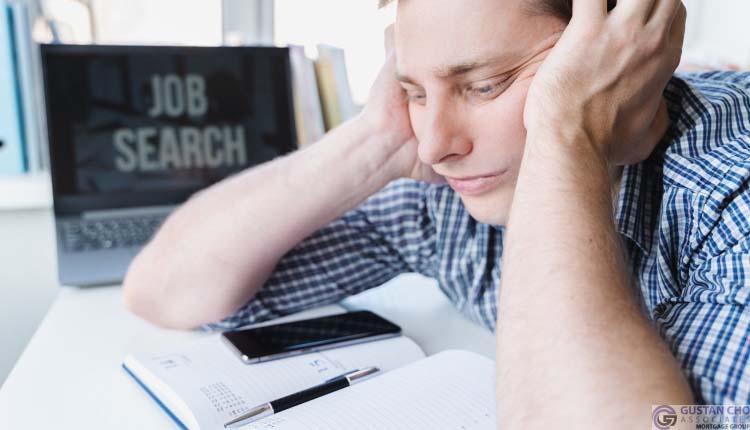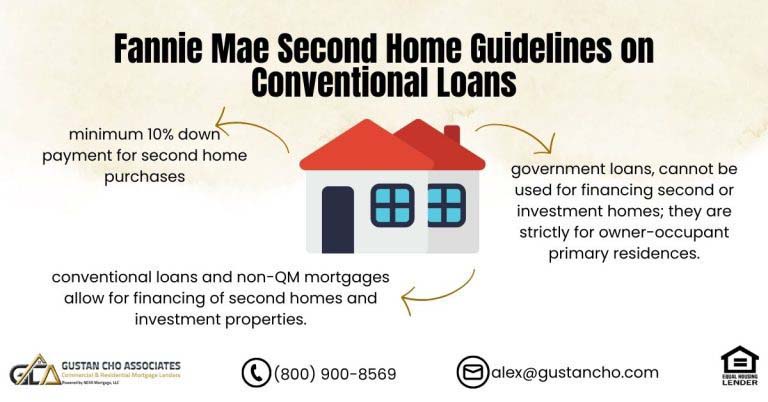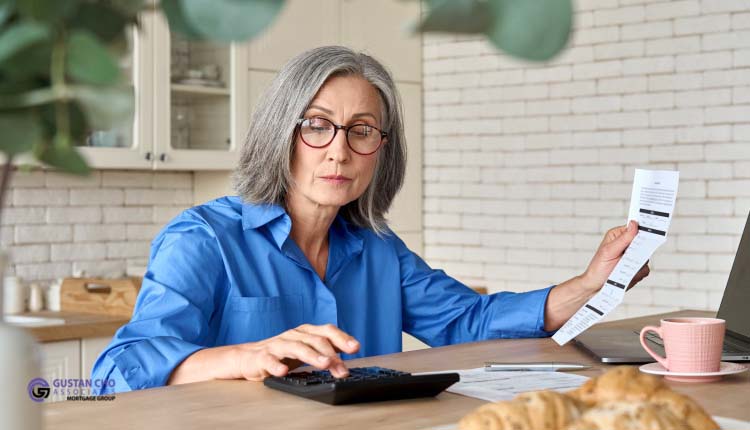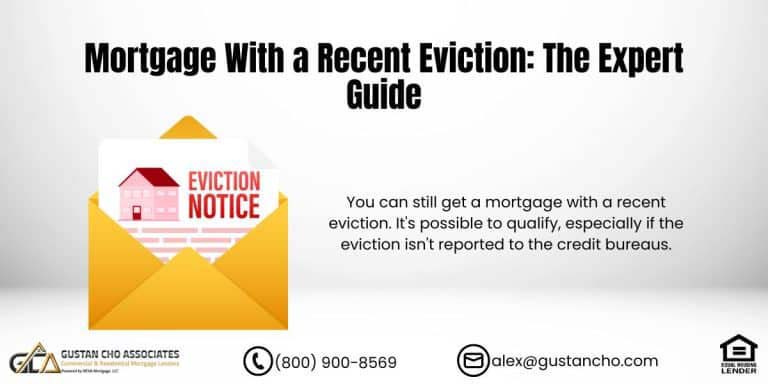Mortgage Guidelines After Unemployment in 2025: How to Get Approved
Losing your job can feel like pausing your dream of buying a home. But the good news is, getting a mortgage after unemployment is still possible—even in 2025. If you’re back to work and wondering how soon you can qualify, this guide will walk you through the current mortgage guidelines after unemployment and help you prepare for homeownership.
At Gustan Cho Associates, we help borrowers who’ve had job gaps, career changes, or temporary layoffs daily. We believe everyone deserves a second chance, without unnecessary roadblocks or lender overlays.
Can You Get a Mortgage After Being Unemployed?
Yes! After unemployment, you can still qualify for a home loan if you meet a few key requirements. Lenders want to see that you’re back at work, earning income, and have a stable job. But no rule says you’re disqualified because you were recently out of work.
Let’s break down the most important mortgage guidelines after unemployment in 2025.
Back to Work? Let’s Get You Home Loan Approved
Just got a new job after unemployment? You may still qualify for a mortgage sooner than you think.
Mortgage Guidelines After Unemployment: What Lenders Look For
Whether you’re applying for an FHA, VA, USDA, or conventional loan, these rules apply to most mortgage programs:
If Your Unemployment Gap Was Less Than 6 Months:
- No waiting period is required once you return to work.
- You do not need to return to the same job or industry.
- You must now have a full-time job (part-time jobs may require additional documentation).
You may become eligible for a mortgage when you begin your new full-time job.
If You Were Unemployed for More Than 6 Months:
- You’ll need to be in your new job for at least 6 months before applying.
- If you’re returning to your old job, you may not need to wait, especially if it’s the same position.
These rules are part of the standard mortgage guidelines after unemployment and haven’t changed much in recent years. But some lenders have overlays that complicate things—we don’t.
Can You Switch Careers and Still Get a Mortgage?
Absolutely. In 2025, career changes are common, especially after the pandemic and the rise of remote work, gig work, and self-employment. You do not need to return to the same field to get approved.
For example:
- A restaurant worker can become a delivery driver.
- A teacher can become an office manager.
- A factory worker can shift to customer service.
As long as the new job is full-time and verifiable, you may still qualify based on current mortgage guidelines after unemployment.
How Lenders Verify Employment After a Job Gap
Lenders need to know your income is reliable before approving your mortgage. Here’s what they typically ask for:
- A paystub showing at least 30 days of income from your new job
- A Verification of Employment (VOE) directly from your employer
- Possibly a written offer letter (especially for jobs that started within the past 30–60 days)
At Gustan Cho Associates, we help you gather all this and work with flexible lenders that don’t add extra rules. We follow only the agency guidelines, not overlays.
Don’t Let a Job Gap Stop Your Homeownership Plans
We specialize in helping buyers who’ve experienced unemployment get approved for a mortgage—fast and stress-free.
Do Self-Employed Borrowers Need to Wait Longer?
If you’re self-employed and had a break in business activity, getting approved may be trickier, but not impossible.
You’ll need to show:
- Your business is back up and running
- You’ve had consistent deposits or invoicing for at least 3–6 months
- Your income is steady enough to support a mortgage
We also offer bank statement loans that don’t require tax returns—perfect for gig workers, freelancers, or anyone who doesn’t get a W-2. These programs follow different mortgage guidelines after unemployment and give you more options.
What If You’re Still in a Probationary Period?
Many new jobs have a 90-day probationary period. The good news? You can still qualify for a mortgage during this time, as long as:
- You’ve already started working, and
- Your income is verified with pay stubs or an offer letter
Some lenders may hesitate, but Gustan Cho Associates can help you get approved even if you’re still in the early days of your new job.
FHA, VA, and Conventional Loans: Which Is Best After Unemployment?
Each loan rogram has its own benefits
FHA Loans:
FHA loans are an excellent choice for purchasers who have recently switched jobs or have a lower income. You can qualify with a credit score as low as 500 to 580. These loans are flexible with employment history, making them easier to obtain for those who have just gone back to full-time work.
Scenario: Sarah recently switched jobs and is making less money than she used to at her old gig. She left a big corporation to chase something she’s more passionate about, even though it pays less. With a credit score 570, which isn’t great for most loans, she still decides to go for an FHA loan. Luckily, FHA loans are pretty flexible regarding work history, which helps her out.
By showing proof of her steady income and a solid payment history from her last job, Sarah manages to secure a loan to buy her first home. This way, she can dive into her new career without stressing about where she’ll live.
VA Loans:
VA loans come with some great perks for veterans, making it easier to buy a home even if they’ve had some time off work. Take John, for example. He stepped away from his job to help his family, but has since returned to work and has a steady paycheck. He can use his VA loan to buy a place thanks to the fact that there is no down payment requirement.
Then there’s Lisa, another veteran who moved for a job after her service. She had a little unemployment in between, but she still meets the VA’s income guidelines and can get a loan based on her current earnings. She can snag a house in her new city without too much financial stress.
Conventional Loans:
Conventional loans generally require borrowers to show a history of stable income over two years. However, some borrowers can still find success despite recent job changes. For example, Tom had worked in a stable job for several years but took a brief hiatus after being laid off and subsequently accepted a new position with a higher salary. Although he experienced a short employment gap, Tom’s strong credit
score and income from his new job allow him to qualify for a conventional loan. Another scenario could involve Rachel, who has a solid income and a good credit history but took six months off for personal reasons. After returning to work, Rachel finds that her established credit and recent pay stubs help her obtain a conventional loan, allowing her to purchase a home that suits her needs.
We’ll help you pick the best loan for your current situation, using the most up-to-date mortgage guidelines after unemployment.
Mortgage Approval After Unemployment Is Possible
Even with a recent job gap, you could still qualify. Find out the updated 2025 guidelines and get pre-approved today
Common Myths About Getting a Mortgage After Unemployment
Let’s clear up a few misconceptions:
Myth #1: You Need to Be on the Job for a Full Year
Not true. If you were unemployed for less than 6 months, you don’t need any job seasoning at all.
Myth #2: You Must Go Back to the Same Job
Wrong again. Lenders just want to see full-time, stable income, regardless of industry.
Myth #3: A Layoff Automatically Disqualifies You
Absolutely not. Millions of Americans experience layoffs. What matters is what you’ve done since the unemployment period.
Understanding the truth about mortgage guidelines after unemployment can open the door to homeownership sooner than you think.
Tips to Strengthen Your Mortgage Application After Unemployment
Here’s how to improve your chances of getting approved:
- Get a full-time job as soon as possible.
- Keep all documents: pay stubs, offer letters, and Verification of Employment (VOE).
- Watch your credit score—avoid late payments and keep credit card balances low.
- Save money—having a solid down payment and reserves helps a lot.
- Work with a lender that doesn’t add overlays, like Gustan Cho Associates.
Following the correct mortgage guidelines after unemployment and applying with a lender who understands your story can make all the difference.
What Makes Gustan Cho Associates Different?
We specialize in helping borrowers who:
- Recently changed jobs
- Have lower credit scores
- Are recovering from unemployment
- Were denied by other lenders due to overlays
We don’t add extra rules. We follow only HUD, VA, USDA, and Fannie/Freddie guidelines, and close loans quickly.
Our team understands that life happens. If you’re back on your feet and ready to move forward, we can help you buy a home.
Final Thoughts: You’re Not Alone, and You’re Not Out
Millions of people experience job loss every year. What matters now is that you’re working again and ready to become a homeowner. The mortgage guidelines after unemployment in 2025 are more flexible than most people think. If you’ve been denied before, don’t give up.
At Gustan Cho Associates, we approve loans that other lenders won’t. Whether you’ve had a job gap, career change, or credit issues, we’re here to guide you every step of the way.
Ready to See If You Qualify?
Borrowers who need a five-star national mortgage company licensed in 50 states with no overlays and who are experts on mortgage guidelines after unemployment, please contact us at 800-900-8569, text us for a faster response, or email us at gcho@gustancho.com. The team at Gustan Cho Associates is available 7 days a week, on evenings, weekends, and holidays.
No overlays. No nonsense. Just results.
You’re Working Again—Let’s Work on Getting You a Home
We understand life happens. If you’re back to work, we can help you buy a home—even after unemployment.
Frequently Asked Questions About Mortgage Guidelines After Unemployment:
Q: Can I Get a Mortgage if I Just Started a New Job After Being Unemployed?
A: Yes, you can. According to mortgage guidelines after unemployment, if you were unemployed for less than 6 months and now have a full-time job, you may qualify immediately, even if it’s a new career or job.
Q: Do I have to go Back to the Same Job to Get a Mortgage?
A: No. Mortgage guidelines after unemployment let you switch jobs or even switch industries. You can still qualify as long as your new job is full-time and stable.
Q: How Long Must I be at My New Job Before Applying for a Mortgage?
A: If you have been out of work for less than 6 months, there’s no waiting—you can apply as soon as you start working. If you were unemployed for over 6 months, mortgage guidelines after unemployment usually require you to be back at work for 6 months before applying.
Q: Can I Get Approved for a Mortgage if I’m Still on Probation at My Job?
A: Yes. Many lenders will approve you once you’ve started working and your income is verified with pay stubs or a job offer letter. Mortgage guidelines after unemployment don’t disqualify you for being on probation.
Q: Do Mortgage Guidelines After Unemployment Apply to Self-Employed People, Too?
A: Yes, but the rules are different. If you’re self-employed, you’ll need to show that your business is active again and has consistently earned income for 3–6 months. We also offer bank statement loans for self-employed borrowers without tax returns.
Q: Will Being Laid Off Last Year Hurt My Chances of Getting a Mortgage Now?
A: Not necessarily. Mortgage guidelines after unemployment focus on your current job and income. You’re likely still eligible if you’re back to full-time work, especially after a short unemployment period.
Q: What Documents do I Need to Get a Mortgage After Unemployment?
A: You’ll need pay stubs (usually 30 days), a Verification of Employment from your employer, and possibly an offer letter. These are standard under mortgage guidelines after unemployment.
Q: Can I Still Get a Low Credit Score Loan if I was Recently Unemployed?
A: Yes. At Gustan Cho Associates, we offer FHA and VA loans down to 500 credit scores. You can qualify under mortgage guidelines after unemployment, even with lower credit, as long as you meet income and job requirements.
Q: Which Loan is Better After Unemployment—FHA, VA, or Conventional?
A: It depends. FHA is flexible with job gaps, VA is great for eligible veterans with solid income, and Conventional works well if you have good credit. All follow mortgage guidelines after unemployment, and we’ll help you find the best fit.
Q: Why Work with Gustan Cho Associates After Unemployment?
A: Because we don’t add overlays. We follow only the agency mortgage guidelines after unemployment, which means we approve borrowers that other lenders turn away, especially those with job gaps or recent career changes.
This blog about “Mortgage Guidelines After Unemployment You Can Trust” was updated on September 10th, 2025.
Don’t Let a Job Gap Stop Your Homeownership Plans
We specialize in helping buyers who’ve experienced unemployment get approved for a mortgage—fast and stress-free.










